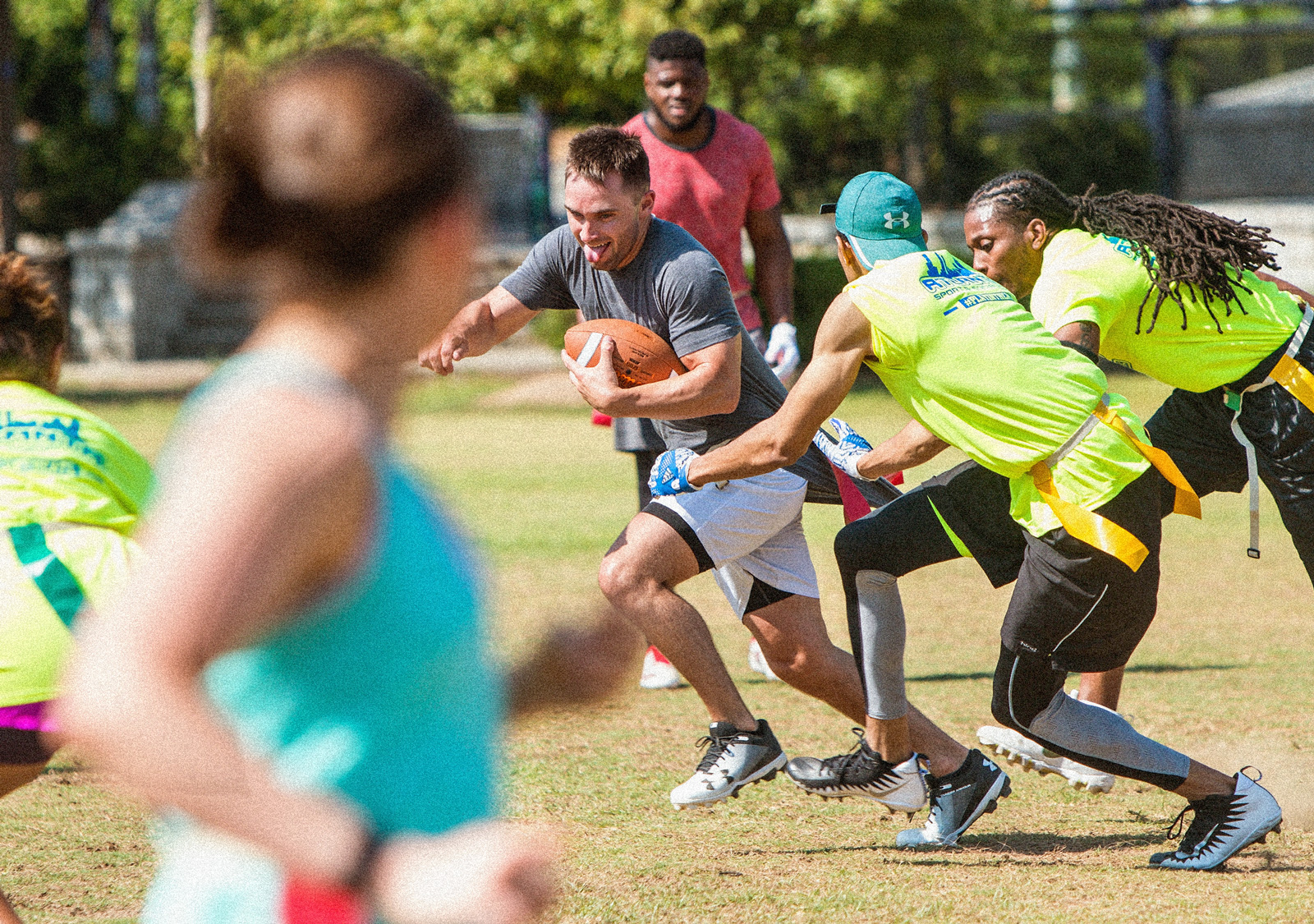(link to original article: Why Sport is Essential for a Happy Social Life – SAPCA)
Whilst playing sports can widen your social circles, it can also teach you valuable social skills including communication, independence, ability to work with others and many more. Getting involved with a kick about after work, joining a local netball club or similar, can produce other massive social benefits to your life too. Read on to find out why.
Firstly, let’s take a look at the overall benefits sport brings to your social life. Of course there are many and for each individual, they’ll differ. Below are three common benefits people gain from getting involved with sport.
1. Meeting New People
To state the obvious, when playing sports that are based on teams competing, you’re inevitably going to meet new people. That being said, you don’t have to get involved with a sport like football, netball, cricket or similar in order to make new friends. Individual sports like athletics can open the doors to many social opportunities. For one, most athletic events are held at sport stadiums where many athletes come together to compete individually. So, whether you want to play as part of a team or by yourself, you’ll still be able to get to know new friendly faces.
Having met new people, you’ll often find that this will blossom into long-lasting friendships. But why? The people you come into contact with when playing these sports will no doubt have similar interests to you. After all, you’re all there because you have a love of running or swimming and so on.
2. Reduces Negative Impacts on Mental Health
Most of us will know that exercise is closely linked to mental health. The more exercise you do, the greater number of positive implications to your mental health. Just some of the reasoning to turn to exercise when feeling stress is that it can stimulate brain changes (including calm feelings), it releases endorphins that energise you, and finally it can act as a distraction from depressed thoughts.
Not only does working out help fight against depression, anxiety and general stress but it can also help to sharpen your memory and thinking, boost your immune system and improve your self-esteem. All of these factors contribute to happy and stable mental health.
3. Boosts Self-Confidence
For many people, winning often gives users a boost of confidence and self-belief that they are capable of achieving great things. Whether that’s winning at a raffle work, a board game between friends or at a competitive sporting event. You’ll often get the same amazing feeling. With that in mind, the more sport you play, the better you become and the achievements you make often become bigger and better. This can then motivate you to continue training and competing to add more medals to your name.
Tthe more exercise you do, generally the fitter you become. This means that over time you’re likely to lose weight or tone up which can enhance your physical health and in effect boost your self-esteem. Now that is a win-win!
HOW SPORT IMPROVES YOUR SOCIAL SKILLS
Along with improving your overall social life, getting involved in sports can teach you valuable life skills that are great for future employment and helping you tackle daily life. Below are three of the most common social skills that are derived from playing sport.
1. Communication
Of course, communication is a major skill taught from playing sports. Particularly in a team situation, communication is essential in the team’s success. Many sporting activities can be quite intense therefore requiring athletes to be on the ball and in the right place at the right time. In order for this to happen, players must communicate efficiently with one another to ensure this happens.
For many of us who compete regularly in sporting events, they’ll know how frustrating it can be when there is a lack of communication between team members. This very often leads to a defeat. Most athletes who invest a lot of time in sport will know that in order to bounce back from a loss, improving your communication is vital.
2. Organisation and Time Management
Playing sports calls for discipline, and that’s not just within the activity itself. For example, it ensures you play fairly but also means you’re organised to turn up to the event on time and so on. Particularly when it comes to those people who have a tendency to skip events, working as part of a sports team means that they’ll feel more pressure to turn up to training sessions, for it’s not just they who’ll be let down by their teammates.
Furthermore, as well as organisation and discipline, another lesson learned is how to manage your time effectively. In every aspect of life there’ll be situations where time management is essential. Be that during younger school years with homework, leisure time and so on or a little later on in life when work commitments come into consideration. If a child can learn that they must prioritise tasks and be determined to get them done in time, they’ll often be able to take part in everything asked of them.
Without this social skill, they’ll often find themselves missing out on things, letting people down and not being a reliable friend or employee – or a trusted member of a sports team.
3. Leadership
Every sports team has a leader. Whether they are formally addressed as captain or coach or not, there will be somebody on the team that people look up to. They’ll have power to motivate the team and inspire them to perform beyond their current capabilities. Regardless of whether you’re the team leader or not, you can learn a lot from these people and take on board their strong qualities in your own character.
Sometimes coaches will purposely choose quieter players in a team to be the captain in order to give them more responsibility, bringing them out of their shell. Particularly for youngsters or beginners, this can be extremely beneficial to their development in both the sport and their social skills.







